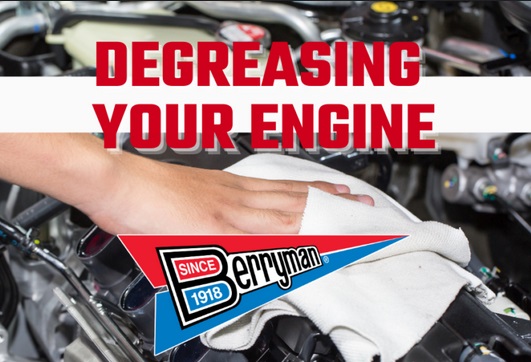 A clean engine isn’t just about aesthetics—it plays a crucial role in vehicle performance, longevity, and maintenance. This is where an engine degreaser comesin. Over repairs, engines accumulate grease, oil as it turns out , and dirt, which can lead to overheating, poor fuel efficiency, and even costly time. Whether you’re a car enthusiast, a professional mechanic, or just a regular driver looking to maintain your vehicle, understanding how to choose and use an engine degreaser can make a significant difference.
A clean engine isn’t just about aesthetics—it plays a crucial role in vehicle performance, longevity, and maintenance. This is where an engine degreaser comesin. Over repairs, engines accumulate grease, oil as it turns out , and dirt, which can lead to overheating, poor fuel efficiency, and even costly time. Whether you’re a car enthusiast, a professional mechanic, or just a regular driver looking to maintain your vehicle, understanding how to choose and use an engine degreaser can make a significant difference.
What Is an Engine Degreaser?
An engine degreaserThese degreasers work by dissolving tough contaminants, making as a matter of fact it easierawayto rinse them . Actually, is a specialized cleaning solution designed to break down and remove built-up grease, oil, and grime from your engine. Available in various formulations—including water-based, petroleum-based, and biodegradable options—engine degreasers cater to different cleaning needs and environmental considerations.
Why Is Engine Degreasing Important?
Regularly degreasing your engine offers several benefits:
- Improved Engine Performance: Excess grease and oil can cause your engine to overheat, leading to potential damage.
- Easier Maintenance and Repairs: A clean engine allows mechanics and DIY enthusiasts to spot leaks, worn-out parts, and other issues more easily.
- Enhanced Longevity: Removing dirt and contaminants helps prevent premature wear and tear on engine components.
- Fire Prevention: Built-up oil and grease can pose a fire hazard, especially in high-temperature conditions.
Types of Engine Degreasers
1. Solvent-Based Degreasers
In from another perspective fact, They are powerful and work quickly but may have a strong odor and require proper ventilation. These degreasers use petroleum-based solvents to dissolve grease and grime effectively.
2. Water-Based Degreasers
These eco-friendly degreasers use as it turns out water as a carrier instead of harsh chemicals. They are safer for the environment and human health but may require a bit more scrubbing for .-duty cleaningheavy
3. Foaming Degreasers
Foaming degreasers cling to engine surfaces, allowing them to break down grease more effectively. They are particularly useful for vertical or hard-to-reach areas.
4. Biodegradable Degreasers
These products are formulated with environmentally safe ingredients and are ideal for those looking for a green cleaning solution.
How to Use an Engine Degreaser Effectively
Step 1: Preparation
- Ensure the engine is cool before applying any degreaser.
- Cover sensitive components such as the alternator, electrical connections, and air intake with plastic bags.
- Park your vehicle in a well-ventilated area or outdoors.
Step 2: Application
- Spray the degreaser evenly across the engine, focusing on areas with heavy grease buildup.
- Let it sit for 5-10 minutes to break down the grime effectively.
Step 3: Scrubbing (If Necessary)
- For stubborn grime, use a soft brush to scrub hard-to-reach areas.
Step 4: Rinsing
- Use a low-pressure water source, such as a garden hose, to rinse off the degreaser.
- Avoid using high-pressure water as it may force moisture into sensitive engine parts.
Step 5: Drying
- Wipe excess water with a microfiber cloth.
- Let the engine air-dry before starting the vehicle.
Choosing the Right Engine Degreaser
When selecting an engine degreaser, consider:
- Cleaning Power: Heavy-duty degreasers work best for thick grease, while mild formulations are ideal for regular maintenance.
- Environmental Impact: If you’re eco-conscious, opt for a biodegradable or water-based degreaser.
- Ease of Use: Aerosol sprays and foaming degreasers offer convenience, while liquid formulas may require additional tools.
- Safety: Ensure the degreaser is safe for painted surfaces, rubber components, and electrical connections.
DIY Alternatives to Commercial Engine Degreasers
homemade you prefer a If solution, you can mix:
- Dish Soap and Baking Soda: Creates a mild yet effective degreaser.
- Vinegar and Water: Helps break down grime while being eco-friendly.
- Citrus-Based Cleaners: Natural citrus oils act as degreasing agents without harsh chemicals.
Conclusion
Using an engine degreaser is a simple yet effective way to keep your engine in top condition. Regular cleaning not only enhances performance but also prevents costly repairs down the line. Whether you choose a commercial degreaser or a DIY solution, keeping your engine clean should be a vital part of your vehicle maintenance routine.
By investing a little time in engine care, you ensure your car runs smoothly and efficiently for years to come.